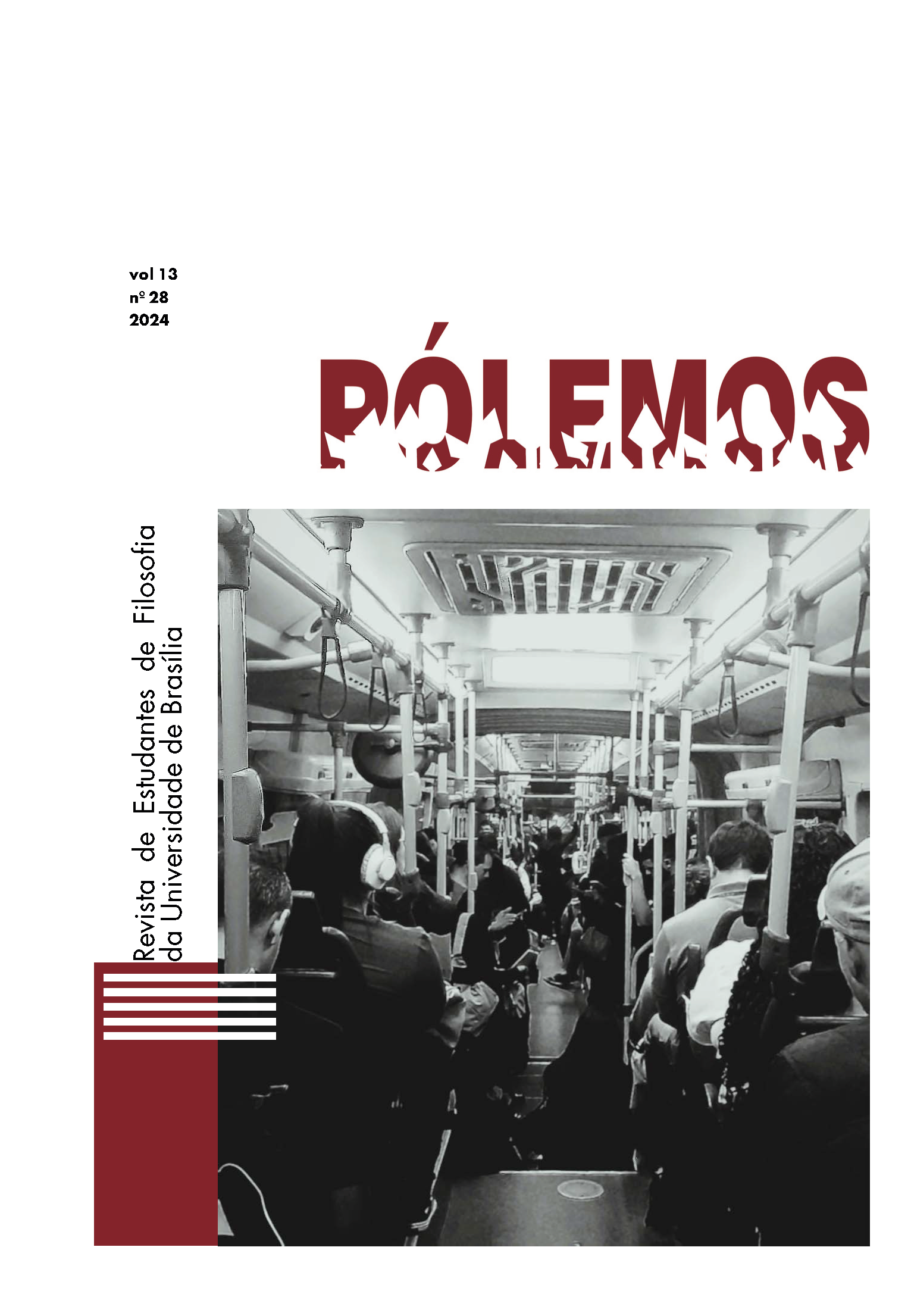THE SEMANTIC SCEPTICISM EXPOSED BY KRIPKE BASED ON WITTGENSTEIN
an ontological problem?
DOI:
https://doi.org/10.26512/pl.v13i28.53950Keywords:
Semantic scepticism. Meaning. Ontology. Factualism. Quus.Abstract
In Wittgenstein on rules and private language, Kripke reads into Wittgenstein's Philosophical investigations a new type of sceptical problem: semantic scepticism. His exposition formulates a sceptical paradox whose objective is to question whether there are facts constitutive of meaning. Starting from an arithmetic example, Kripke questions whether, in apparently simple sums, we would actually be following the rule of addition, and not another rule. To show that we are actually carrying out addition, Kripke argues that we must indicate the existence of some fact that justifies us in using ‘+’ meaning addition. The problem is that, as Kripke concludes, no facts satisfy the required conditions. We cannot find such a fact simply because there are no facts constitutive of meaning. Thus, considering the conditions that the putative fact must satisfy, this article intends to defend the interpretative thesis that the problem exposed by Kripke consists, above all, of an ontological problem.
Downloads
References
BAKER, Gordon Park; HACKER, Peter Michael Stephan. Scepticism, rules and language. Oxford: Blackwell, 1984.
GOODMAN, Nelson. Fact, fiction and forecast. 4ª ed. Cambridge: Harvard University Press, 1983.
GROSS, Steven. (Descriptive) externalism in semantics. In: RIEMER, N. (Ed.). The Routledge handbook of semantics. New York: Routledge, 2016, pp. 13-29.
KAPLAN, David. Afterthoughts. In: ALMOG, J.; PERRY, J.; WETTSTEIN, H. (Eds.). Themes from Kaplan. New York: Oxford University Press, 1989, pp. 565-614.
KRIPKE, Saul. Wittgenstein on rules and private language. Oxford: Blackwell, 1982.
LEWIS, David. General semantics. Synthese, v. 22, n. 1-2, pp. 18-67, dez. 1970. DOI: https://doi.org/10.1007/BF00413598
MORRIS, Charles William. Foundations of the theory of signs. International encyclopedia of unified science (org.). Volume 1, number 2. Chicago: The University of Chicago Press, 1938.
PETIT, Philip. The reality of rule-following. In: MILLER, A; WRIGHT, C. (Eds.). Rule-following and meaning. Chesham: Acumen Publishing, 2002, pp. 188-208.
SILVA, Daniel Soares da. Linguagem e visão da comunidade na filosofia de Saul Kripke: de Naming and necessity a Wittgenstein on rules and private language. São Paulo. 208f. Tese (Doutorado). Escola de Filosofia, Letras e Ciências Humanas, Universidade Federal de São Paulo. 2017.
SHAGRIR, Oron. Kripke’s infinity argument. In: BERG, J. (Ed.). Naming, necessity and more: explorations in the philosophical work of Saul Kripke. New York: Palgrave Macmillan, 2014, pp. 169-190.
SPEAKS, Jeff. Theories of Meaning. In: ZALTA, E. (Ed.). The Stanford Encyclopedia of Philosophy, 2021. Disponível em: https://plato.stanford.edu/entries/meaning/. Acesso em: 09 maio 2024.
STALNAKER, Robert. Reference and necessity. In: HALE, B.; WRIGHT, C. (Eds.). A companion to the philosophy of language. Oxford: Blackwell, 1997, pp. 534-554.
THORNTON, Tim. Wittgenstein sobre pensamento e linguagem. Tradução de Alessandra Siedschlog Fernandes e Rogério Bettoni. São Paulo: Edições Loyola, 2007.
WITTGENSTEIN, Ludwig. Investigações filosóficas. Tradução de Marcos G. Montagnoli. Petrópolis: Vozes, 2014.
Downloads
Published
How to Cite
Issue
Section
License
Copyright (c) 2024 PÓLEMOS – Revista de Estudantes de Filosofia da Universidade de Brasília

This work is licensed under a Creative Commons Attribution-NonCommercial-NoDerivatives 4.0 International License.
Todos os trabalhos que forem aceitos para publicação, após o devido processo avaliativo, serão publicados sob uma licença Creative Commons, na modalidade Attribution-NonCommercial-NoDerivatives 4.0 International Public License (CC BY-NC-ND 4.0). Esta licença permite que qualquer pessoa copie e distribua a obra total e derivadas criadas a partir dela, desde que seja dado crédito (atribuição) ao autor / Ã autora / aos autores / às autoras.


